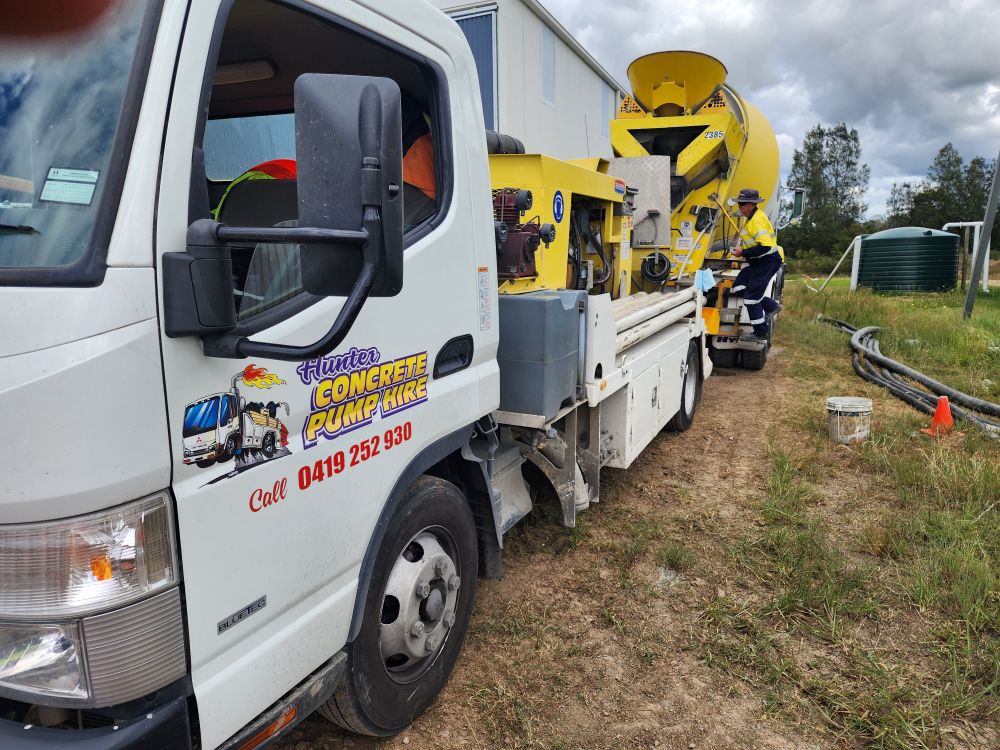Essential Strategies to Avoid Common Pitfalls When Hiring a Concrete Pump
To ensure a hassle-free and efficient concrete pouring experience, it is crucial to avoid delays and unexpected costs that could derail your project. This can be accomplished by selecting the appropriate pump for your needs, meticulously planning site access, and confirming the specific requirements for the pour. Even minor oversights can lead to significant disruptions during concrete jobs, which may threaten both project deadlines and financial budgets. By dedicating time to address these key factors, you not only avert potential headaches but also save on extra expenses in the long term.

1. Selecting the Most Suitable Concrete Pump Type for Your Specific Project
The selection of the most appropriate pump type is profoundly influenced by the specific dimensions and layout of your construction site. For instance, line pumps are particularly beneficial for residential projects involving driveways, footings, or situations where site access is constrained. Conversely, boom pumps are ideally designed for larger commercial applications, such as extensive slabs, elevated pours, or vast open areas. By accurately assessing the project requirements and determining the correct pump type, you can ensure that the concrete pour proceeds without complications, thereby minimising potential issues that could arise during the process.
2. Accurately Estimating the Required Concrete Volume for Your Pour
Misjudging the necessary volume of concrete can result in frustrating delays and the creation of cold joints that compromise the integrity of the work. If you underestimate the required volume, you may find yourself needing additional mixes, while overestimating can lead to waste and inflated costs. It is essential to meticulously measure the length, width, and depth of the pour area. If necessary, consult with your concrete supplier to confirm your calculations. This careful diligence not only helps to avoid excess expenses but also ensures that your project adheres to its timeline, allowing for a smooth progression of work.
3. Thoroughly Planning Site Access for Optimal Concrete Pump Operation
When hiring a concrete pump, it is imperative to give comprehensive consideration to site access. Boom trucks necessitate a stable ground surface, adequate overhead clearance, and sufficient space for the safe extension of their booms, all of which are critical for safe operation. In contrast, line pumps require a clear pathway for the hose from the pump to the pour location. For tighter residential projects, conducting a preliminary walk-through can help identify any potential access challenges, ensuring a smoother process during the actual pour day and minimising the risk of unexpected complications.
4. Avoiding Delays by Booking Your Concrete Pump Hire in Advance
It is vital to recognise that the most reputable operators tend to become fully booked quickly, particularly during peak construction seasons in areas such as Hunter and Newcastle. Delaying the securing of your pump hire significantly increases the risk of being without the necessary equipment, which could lead to costly project delays. To mitigate such a situation, it is wise to finalise your booking well in advance, allowing for a more streamlined project timeline and ensuring the availability of resources when needed.
5. The Critical Need for a Physical Site Visit Before the Pour
While sending photographs of the site can offer some insights, nothing compares to the value of a physical site visit. This brief on-site assessment allows you to identify crucial factors such as hose routing needs, vehicle access points, appropriate washout areas, and the distance from the truck to the slab. By proactively visiting the site, you can address any potential issues ahead of time, ensuring that the concrete pouring process is seamless and efficient, ultimately contributing to the success of your project.
6. Strategically Planning for Washout and Cleanup Procedures Post-Pour
Concrete pumping inevitably generates waste, making it essential to establish a well-structured washout plan. This plan should ensure that the slurry produced during the pumping process does not contaminate finished areas or clog any drainage systems. Most operators will ask for your preferred washout location, making it imperative to communicate your requirements clearly to prevent any mishaps during the cleanup phase. A well-thought-out washout strategy not only streamlines the process but also upholds site safety and cleanliness.
7. Confirming the Scope of Labour and Project Services Before Finalising Your Hire
Before completing your hire, always ensure that you verify what services are included in the package. Some agreements may only cover the operator, while others might encompass an entire crew. It is crucial to clarify whether the hired team is responsible for assisting with tasks such as hosing, vibrating, or finishing the concrete. By clearly understanding who is accountable for each component of the project before the concrete arrives, you can avoid misunderstandings and guarantee that everything runs smoothly, minimising the risk of project delays.
Why Choose Hunter Concrete Pumps for Your Mini Pump Hire Needs?
Hunter Concrete Pumps offers a straightforward and transparent hiring process, making it simpler for you to receive the support you require:
- Flat Rate Hiring Option: Benefit from a competitive rate of $800 for the first load (covering up to 3 hours on-site), with a subsequent fee of $50 for each additional load.
- Hourly Rate Hiring Option: Choose an hourly rate of $190 (with a minimum requirement of 3 hours), along with an additional $190 for travel and $6 per m³ pumped.
If you are uncertain about the equipment you require, the dedicated team at Hunter Concrete Pumps is available to assist you throughout your project. They can help you select the most appropriate pump, provide accurate estimates for your concrete volume, and even coordinate concrete supply along with experienced labour to ensure a hassle-free experience from start to finish.
Your Questions Answered: Frequently Asked Questions About Concrete Pump Hiring
What is the most cost-effective option for hiring a concrete pump for a small project?
For smaller residential pours, a mini line pump typically represents the most economical choice. Hunter Concrete Pumps provides a flat-rate option starting at just $800 for the first load, making it an attractive solution for customers working within a budget.
Can Hunter Concrete Pumps assist in coordinating my pour from start to finish?
Absolutely! Hunter Concrete Pumps is fully equipped to aid in selecting the right pump, estimating the required volume, arranging concrete delivery, and providing crew members to efficiently manage the hose and cleanup tasks.
Building Strong Partnerships with Concrete Pump Professionals
Hiring a concrete pump can be a straightforward process when you focus on the essentials: site access, accurate volume calculations, crew coordination, and timely bookings. By getting these fundamental elements right, you can effectively avoid the common pitfalls that often delay projects and inflate costs. With the right team supporting you, your concrete pour can be executed flawlessly on the first attempt. This reliability is precisely why Hunter Concrete Pumps has established strong partnerships with numerous developers throughout Newcastle and the Hunter Region.
Concrete Pump Hire
The Article: Avoid These Common Hiring Mistakes for Concrete Pumps first appeared on https://writebuff.com
The Article Avoid Common Concrete Pump Hiring Mistakes Was Found On https://limitsofstrategy.com


I really appreciate your insights on the importance of selecting the right concrete pump and planning ahead. It’s funny how many people overlook the tiny details when working on a project, thinking it’s all about the grand design rather than the nitty-gritty of logistics.
It’s true—those tiny details have a sneaky way of turning grand designs into chaotic messes. You can have the most brilliant blueprint in the world, but if your concrete pump decides to take a coffee break when it’s time to pour, you might as well be building sandcastles at the beach. It’s that classic case of “the devil’s in the details.”
You’re spot on about that! It’s easy to get swept up in the big picture – the aesthetics, the design, that grand vision we all have in our heads. But all those little logistics, like choosing the right concrete pump, can make or break a project.